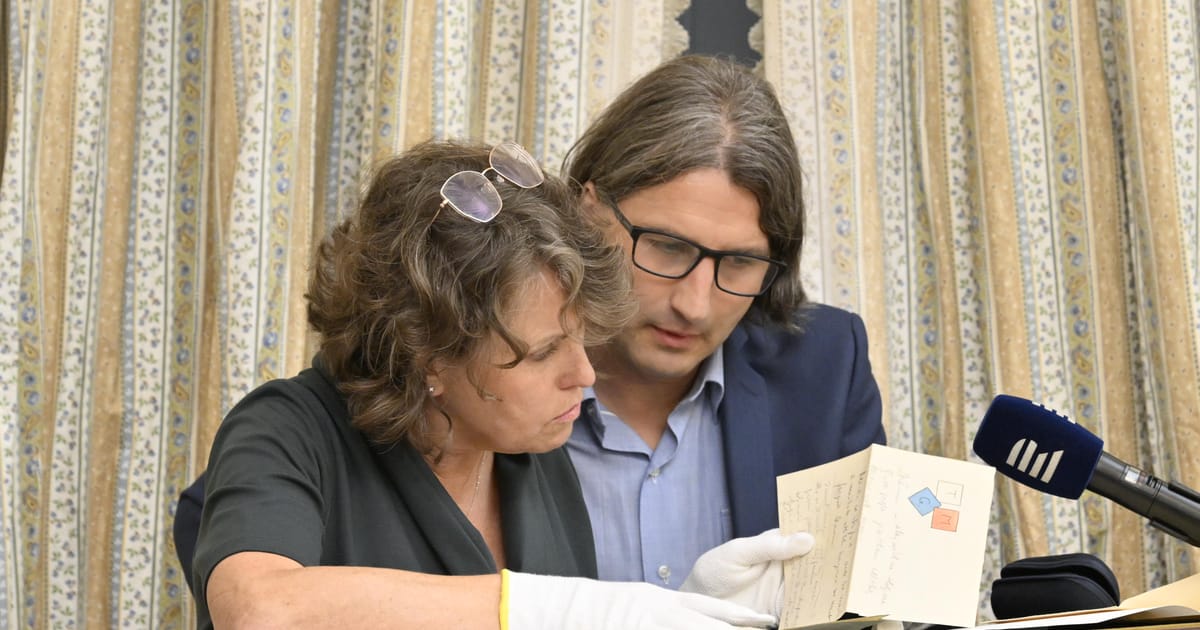A long-awaited opening
For years, speculation swirled around a mysterious sealed envelope kept in the Czech National Archives. Many believed it would reveal the last words of Tomáš Garrigue Masaryk, the first president of Czechoslovakia, remembered as the “President Liberator.”
That moment finally came at Lány, the presidential summer residence, during a ceremony that was broadcast live by the Czech Radio both in audio and video. It was attended by President Petr Pavel, historians, journalists, and a member of the Masaryk family. The envelope was carefully opened by the director of the National Archives, Milan Vojáček, and historian Dagmar Hájková, both wearing white gloves.
Reflections from 1934, not 1937
Inside were several pages mostly in English, handwritten by Jan Masaryk, the president’s son and later Czechoslovak foreign minister. The finding shifted expectations: these were not words dictated on Masaryk’s deathbed in 1937, but almost certainly reflections from the summer of 1934, when he was gravely ill and those around him feared he might not recover.
Dagmar Hájková read the notes aloud to the public for the first time. Among them was a striking passage:
“I am ill, seriously ill — it is the end, but I am not afraid. You will continue the work, you know how, but you must be careful. You know how to behave; I don’t need to tell you anything more.”
Some sections, Hájková noted, went beyond personal reflections and carried the weight of a political message.
“It is quite possible that others were present when this note was recorded — perhaps his daughter Alice, or even Edvard Beneš — because in some passages the document reads like a political message about how to treat the other peoples of multinational Czechoslovakia. There is, for example, a record about the Germans: they should stay with us. Masaryk said, ‘Give them what they deserve, but no more.’”
Preparing for death and legacy
The papers also revealed how deeply Masaryk thought about his death and funeral long before 1937.
“Masaryk prepared for his own funeral for a very long time, already from the beginning of the 1930s, when it was being discussed where he would be buried. It was never clearly stated that it would be at Lány. What he wanted in any case was a simple grave with his family. At the same time, he was aware that even such an event would have great symbolic significance, which was confirmed in 1937.”
Another passage displayed Masaryk’s stark reflections on society and education:
“If people are uneducated and foolish, there is not much that can be done. People are glad to be foolish — do not make it easy for them, and argue with them.”
The journey of the envelope
The envelope itself traveled an extraordinary path. After Masaryk’s death, the papers were kept by his son Jan. They likely went with him to London during his diplomatic service, then back to Prague, and after his mysterious death in 1948 passed into the hands of his secretary Lumír Soukup. From there, the envelope journeyed into exile in Scotland and later France. After the fall of communism, Soukup’s family began returning Masaryk materials to Czechoslovakia.
In 2005, Antonín Sum, another of Jan Masaryk’s secretaries, deposited the envelope in the National Archives with a wish that it remained sealed until this week. The reason for this remains to be explained. It will now be a subject of a profound restoration and careful sytematic research In the Czech National Archives. The offical results shoud be published in about a month.
